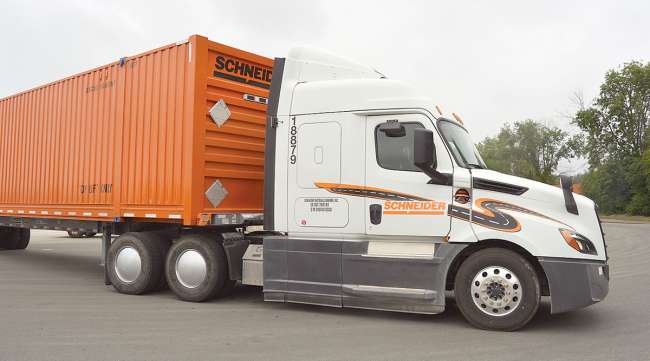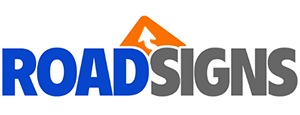Senior Reporter
Schneider Q4 Earnings Miss Wall Street Expectations

[Stay on top of transportation news: Get TTNews in your inbox.]
Schneider National Inc. reported Jan. 29 that fourth-quarter 2019 and yearly financial numbers declined when compared with 2018’s record year.
Quarterly net income was $55.9 million or 32 cents per diluted earnings per share, compared with $84.8 million or 48 cents, last year.
On a cash basis, the decline in quarterly net income year-over-year was 34%, and on a per-share basis, the drop was 24%. For the year, Schneider reported net income of $147 million or 83 cents per share for 2019, compared with $268.9 million or $1.52 in 2018. The company said on a cash basis and share price basis, the decline in 2019 was 45% when compared with a year earlier.
The Green Bay, Wis.-based company’s fourth-quarter revenue was $1.15 billion, a 13% drop from $1.32 billion in 2018. For the year, Schneider’s revenue was $4.74 billion compared with $4.97 billion in 2018, a 5% decline.
The carrier’s numbers missed the expectations of Wall Street, which had been looking for an adjusted price of 39 cents per share and quarterly revenue of $1.22 billion, according to Zacks Consensus Estimate. The company said its adjusted share price was 37 cents per share.
Schneider said income in the quarter was impacted by a $13.3 million in shutdown costs for its First-to-Final Mile delivery service after what it says was a disappointing performance. The segment had been operating for three years and had 26 terminals in the United States.
The troubled division serviced business-to-business and business-to-consumer movements for freight, such as furniture, carpet and appliances.

Rourke
“We took several actions during 2019 to refine our freight mix and the services we offer,” CEO Mike Rourke said. “In addition, we improved our cost profile, lowered our age of fleet and drove improvements through continued investments in technology. We believe these actions position us well for 2020 and the opportunities that lie ahead.”
However, the company’s operating ratio also increased to 93.2 for the fourth quarter from 91 a year ago. For the year, the operating ratio increased to 95.6 from 92.4. Operating ratio, or operating expenses as a percentage of revenue, is used to measure efficiency. The lower the ratio, the higher the company’s ability to generate profit.
Baird Equity Research Analyst Ben Hartford in Milwaukee told Transport Topics the company’s quarterly results were about in line with his company’s expectations.
“The fourth-quarter 2019 core operating results were slightly below modeled forecasts but what we view as largely consistent with low expectations into the report,” he said.
In part one of a two-part exploration of autonomous technology today, our latest RoadSigns podcast revisits conversations with CEOs Alex Rodrigues of Embark and Cetin Mericli of Locomation. Hear them explain what testing automated trucks and developing platooning technology has taught them about the road ahead — and get new perspective with host commentary. Listen to a snippet from Rodrigues above, and to hear the full episode, go to RoadSigns.TTNews.com.
The company said revenue in its three primary segments — truckload, intermodal and logistics — showed quarterly declines.
Truckload revenue declined to $494.5 million from $580.1 million in 2018. For the year, revenue fell to $2.076 billion from $2.265 billion in 2018.
Intermodal saw revenue drop to $261.2 million from $267.9 million in the quarter. For 2019, the unit saw an increase in revenue to $1.007 billion compared with $955.9 million in 2018. It marked the first time in the company’s history that the sector topped $1 billion for the entire year.
Logistics revenue declined in the fourth quarter to $227.8 million in 2019 from $280.2 million. On an annual basis, the unit’s revenue dropped to $934.8 million from $1.023 billion in 2018.
Rourke said the quarter started slowly and never gained momentum, which impacted earnings.
“I think we were probably most disappointed with the October, and the early November time frames, when you measure a typical peak season. We felt better about December and momentum throughout,” he said on a conference call. “But overall, the quarter didn’t have what you typically see for a lot of reasons. We didn’t see all that promotional activity that you typically saw. I wouldn’t say it’s a robust start to January, but it’s on expectations, and we have seen some build like we saw in December, and I’m speaking mostly to the for-hire side.”
Schneider ranks No. 7 on the Transport Topics Top 100 list of the largest for-hire carriers in North America and No. 16 on the TT Top 50 list of the largest logistics companies.
Want more news? Listen to today's daily briefing:





